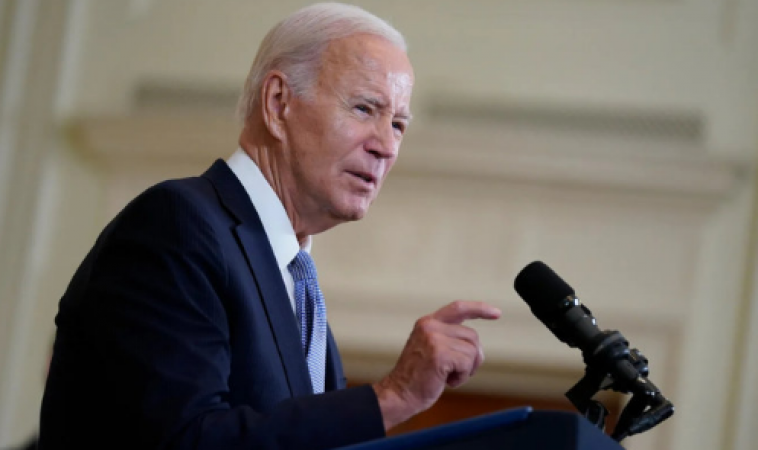
Washington: In a bid to alleviate the soaring costs of prescription drugs and provide financial relief to both Medicare and seniors, the Biden administration unveiled plans on Tuesday to target 10 high-cost drugs for negotiations on their prices.
This potentially transformative move holds the promise of not only generating billions of dollars in savings for the government but also easing the financial burden on elderly citizens grappling with exorbitant healthcare expenses.
Among the drugs listed for negotiation are Eliquis, a blood thinner; Jardiance, a diabetes treatment; and Revlimid, a cancer drug. These medications, recognized as some of the most expensive in the United States, contribute significantly to the escalating healthcare costs faced by the nation.
Also Read: Hero MotoCorp Introduces Karizma XMR 210: A Dynamic Addition to the Performance Motorcycle Segment
Leveraging the authority vested in the administration by the Affordable Care Act, the White House is seeking to harness the power of Medicare to engage in direct price negotiations for drugs categorized as "high cost" or "innovative."
President Biden announced this pivotal initiative in a speech outlining his broader strategy to combat the financial strain inflicted by prescription drug expenses. He expressed his hope that these negotiations would grant Medicare the ability to "finally give Medicare the power it needs to bargain for lower drug prices."
Nonetheless, the pharmaceutical industry has raised objections to the administration's plan, suggesting that it could inadvertently result in increased prices for other medications. In response, President Biden asserted that these negotiations would ultimately "save taxpayers billions of dollars and lower costs for seniors."
Also Read: Facebook Unveils Project Cambria: A Game-Changing VR Headset for Enterprise
While a specific timeline for the negotiations has yet to be established, experts anticipate that discussions will commence in the coming months.
The identified drugs, including Eliquis, Jardiance, Revlimid, Stelara, Xarelto, Imbruvica, Entresto, Farxiga, Enbrel, Trulicity, and Januvia, have all garnered notoriety for their steep price tags, raising concerns about affordability and access to essential medical treatment.
Eliquis, a blood thinner, incurs an average annual cost of $5,200, making it a prime candidate for negotiation. Similarly, Jardiance, a diabetes treatment, averages around $4,700 per year, and Revlimid, a cancer drug, carries an astronomical price tag of approximately $95,000 per year.
The administration anticipates that these negotiations have the potential to yield significant savings for Medicare, estimating around $26 billion over the course of the next decade. Such substantial savings could be achieved through adept negotiation tactics that secure lower prices for these high-cost drugs.
Despite the pharmaceutical industry's reservations about the potential for broader price increases, the Biden administration remains steadfast in its confidence that the negotiations will prove advantageous for both Medicare and seniors.
While the process is likely to be intricate and challenging, officials are optimistic about achieving favorable outcomes that could potentially recalibrate the landscape of prescription drug costs in the country.
This initiative is emblematic of the administration's commitment to addressing the pressing issue of healthcare affordability. By targeting drugs that carry a significant financial burden for both the government and its citizens, President Biden's administration seeks to strike a balance between controlling costs and ensuring accessible, high-quality medical treatment.
The complexity of the negotiations underscores the multifaceted nature of healthcare economics. As the administration endeavors to renegotiate prices, it must consider the broader implications on the pharmaceutical market, innovation incentives, and the well-being of the population that relies on these medications.
The 10 drugs targeted for negotiations are:
These drugs are all among the most expensive prescription drugs in the United States. Eliquis, for example, costs an average of $5,200 per year. Jardiance costs an average of $4,700 per year. And Revlimid costs an average of $95,000 per year.
The Biden administration's decision to focus on negotiations for the prices of 10 high-cost drugs marks a significant stride towards addressing the escalating concerns surrounding healthcare expenses. By harnessing the bargaining power of Medicare, the administration aims to usher in substantial savings for both the government and seniors grappling with financial constraints.
Also Read: Global Economic Growth Expected to Slow in 2023, But Recession Not Imminent, Says OECD
While opposition from the pharmaceutical industry persists, the administration remains committed to pursuing negotiations that strike a balance between affordability and innovation.
As discussions unfold in the coming months, the nation watches with anticipation, hopeful that this initiative will contribute to a more equitable healthcare landscape for all.